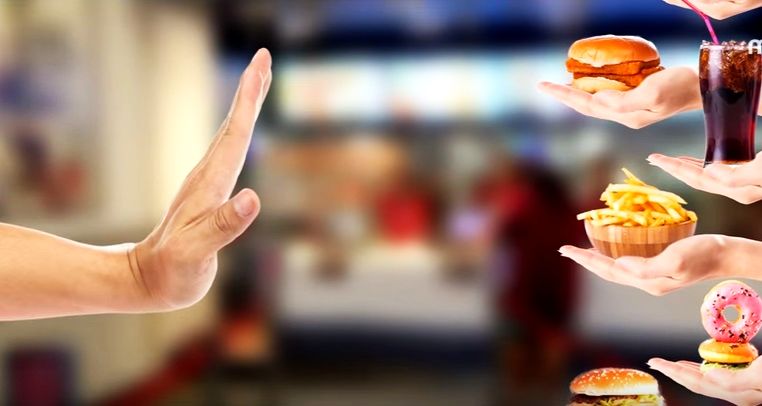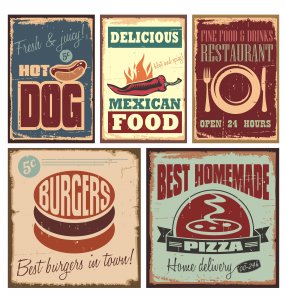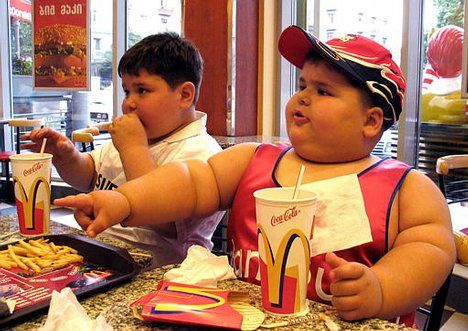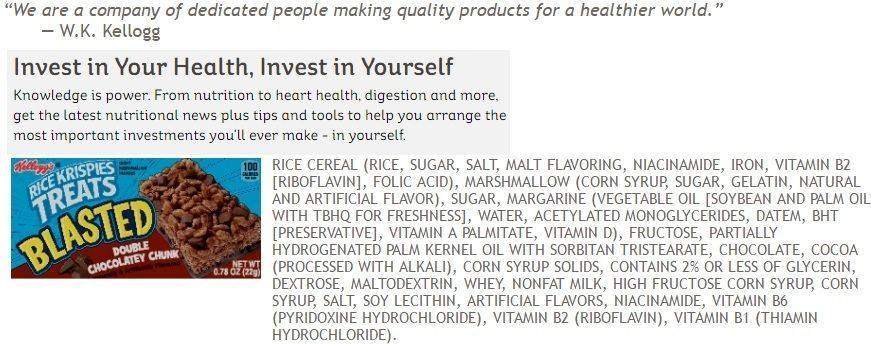
Looking at today’s highly developed and connected technological world with all those smartphones in our hands, large LED TV’s, internet and 24/7 advertisement exposure, we are all constantly bombarded with annoying trends, materials and tricked into thinking that we need certain things to own, even when it’s totally not necessary.
Same goes with the food industry. Every once a while we are made to watch the food advertisements. Buy one pizza get one free, burgers with delicious creamy mozzarella cheese, scrumptious rolls with add-ons, muffins with this and that. Our brain and stomach is constantly taunted and teased by such mouth-watering food pictures. And as a result of that, we start craving for that piece of food we just saw. Today, somehow we always end up binge eating, which is later followed by guilt, weight gain, type 2 diabetes, cancer etc.
From The Perils of Snacking – Hormonal Obesity:
50 years ago, there was a near universal belief that snacking was bad for us. Your grandmother would say "It makes you fat", or "You'll ruin your dinner". Back then, obesity was not such a big problem, so maybe they knew something. But then we changed our minds. We've now decided that snacking is actually good for us. That eating more often will make us thinner, as ridiculous as that sounds. I'm sure you've heard the advice to eat more frequent, smaller meals to lose weight. That would mean that we should eat 3 meals a day and also multiple snacks in between. Dieticians such as the well-respected Leslie Beck, who writes in Canada's national Globe and Mail newspaper feel that snacking is healthy for us. In her August 28th, 2012 article she writes "Snacks are an important part of every child's back to school menu". See? Not only should adults be eating all the time, kids should be, too. Too bad about that childhood obesity epidemic we're having, though... How did we come to make such a 180 degree turn on snacking? The answer, I suppose not surprisingly is that it was the big food companies (Big Food) that convinced us that snacking was good for us. Sometime starting in the 1950's the big food companies had a problem. They needed to sell more food to be more profitable. But with only 3 meals in a day, there was a limit on the amount of food sold. The deviously brilliant solution was to introduce new "eating opportunities". If Big Food could convince us to add a snack between lunch and dinner then the opportunity to sell more food unfurls. A whole new category of food items to sell was created. It needed to be cheap and easy to eat. A perfect job for the refined carbohydrate. After all, cookies and crackers are mostly sugar and flour – and these do not spoil. Over the years, Big Food was able to convince us that snacking was not only acceptable, but it was also healthy. Seriously.
Insulin resistance requires 2 things – high levels and persistent levels. High levels of insulin are provided by the refined carbohydrates found in snacks. Persistent levels are provided by the increased eating opportunities. Insulin resistance is the ultimate outcome of all this snacking. Insulin resistance leads to higher insulin levels which leads to more insulin resistance. The higher insulin level then drives weight gain and obesity. Instead of a balance between the insulin dominant (fed) state and the insulin deficient (fasting) state, we now predominantly spend our time in the 'fed' state. And you wonder why we gain weight?
We are eating all the time! Crazier still – we somehow think that this is good for us! Under the influence of doctors and dieticians and other medical professionals, we have been institutionalizing the practise of snacking. We begin by introducing it in our schools. We teach it to our children that it is acceptable to eat all the time. Not only acceptable, but healthy. We eat breakfast, a mid morning snack (for the long gap between breakfast and lunch), lunch, after school snack, dinner, and then in the time between soccer halves – another snack! That's 5-6 times a day. It is now acceptable that we eat in the car. We can eat in the movie theatre. We can eat in front of the TV. We can eat in front of the computer. We can eat while walking. We can eat while talking. We can eat in a box. We can eat with a fox. We can eat in a house. We can eat with a mouse. We spend millions of dollars to give our children snacks all day. Then we spend millions more to combat childhood obesity. Then we spend millions more to fight diabesity as adults. We give kids snacks all day. Then we berate the same kids for getting fat. We destroy their self-esteem. Then we give everybody a medal for participation to bolster their self-esteem. Arrgggg…..
From Eat Stop Eat:
Most scientific research findings seem to do nothing more than add to the already confused and muddled nutritional theories and diet recommendations that exist, and the cause is clear as day – research on nutrition and food is no longer conducted to improve our health and well being. It is conducted for marketing purposes and as a method to get us to buy one product over another, and it is all based on us being constant consumers.
In fact, it was in an amazing article in Scientific American magazine written by renowned food expert Dr. Marion Nestle where I became aware that it was in the early 1980's food companies had no choice but to attempt to change the way we eat. Faced by stockholder demands for higher short-term returns on investments, food companies were forced to expand sales in a marketplace that already contained an excessive amount of calories.
Their only option was to seek new sales and marketing opportunities by encouraging formerly shunned eating practices such as frequent between-meal snacking, eating in bookstores, and promoting the money-saving value of larger serving sizes. To be clear, our entire style of eating in North America has been molded to support the interests of major food companies.
You may be wondering 'How can a select few people change the way entire countries decide to eat?' Well, in order to promote this new style of eating, enormous amounts of money had to be spent on research supporting the health benefits of this style of eating.
As far as I can tell, most research being conducted on food and nutrition these days is done simply for the purpose of food marketing. This is because the money that funds nutrition research is typically donated by a food company or supplement company. This so-called 'donation' or grant comes with the hope and expectation that the research will produce a health claim or other marketing claim that the company can then advertise as a selling feature for their product. As it turns out, health claims on foods and supplements can be incredibly lucrative, and the politics behind nutrition are undeniable.
It was in a book titled “What to Eat” by author and researcher Marion Nestle (the same author who wrote the article in Scientific American), where I read the following quote – “The real reason for health claims is well established: health claims sell food products.” I couldn't agree more.
The bottom line is that research creates health claims, and health claims sell products. Whether the product is some new 'functional' food or the latest diet program, if research says it works, it will sell more, guaranteed.
Very soon into my readings I began to realize that the research on weight loss had become so skewed with politics that it has turned into the world's most ironic oxymoron. After all, the research was trying to uncover the completely backwards idea; 'what should we eat to lose weight?!'
When I realized that almost all nutrition research was working under this completely backwards paradigm, I understood that I had only one choice. If I was to avoid all of the bias and vested influence in today's nutrition research then I had to go back to the absolute beginning. I had to conduct a thorough review of exactly what happens to human beings in the complete absence of food.
Fasting automatically rules out the use of any sort of food, health supplement, or newly touted “functional foods”. Much to the dismay of food companies, you can't put fasting into a pill and sell it, and as we have already discussed, the purpose of most nutrition research these days is the development of new products.

From 1 Meal a Day - A History of How Eating Evolved:
THE INFLUENCE OF MARKETING
 We've grown accustomed to having three square meals a day which include breakfast, lunch, and dinner. As a matter of fact, we've grown to love food so much that we also throw in snacks during the day to simply hold us over until our next full meal. So how is it that we've come so far from eating only 1 meal a day and actually become so dependent on food? Manufacturers and marketers have pushed many of food habits we have today. Add in the simple fact that everywhere we turn there is a fast food chain, new treats, and easy access to snack machines, it has become obvious how this trend has originated. We also can't forget that we can always “supersize” are meals by simply paying more. It wasn't always this way, as a matter of fact, the 1 meal a day mantra or lifestyle was one which our ancestors followed. It was not only our prehistoric ancestors, but this was the case for several centuries to follow as well.
We've grown accustomed to having three square meals a day which include breakfast, lunch, and dinner. As a matter of fact, we've grown to love food so much that we also throw in snacks during the day to simply hold us over until our next full meal. So how is it that we've come so far from eating only 1 meal a day and actually become so dependent on food? Manufacturers and marketers have pushed many of food habits we have today. Add in the simple fact that everywhere we turn there is a fast food chain, new treats, and easy access to snack machines, it has become obvious how this trend has originated. We also can't forget that we can always “supersize” are meals by simply paying more. It wasn't always this way, as a matter of fact, the 1 meal a day mantra or lifestyle was one which our ancestors followed. It was not only our prehistoric ancestors, but this was the case for several centuries to follow as well.
...this was in 1986 when the first microwave meal was brought to the US and gave us the liberty of simply placing a meal in the microwave and having it ready to eat in a matter of minutes. The packaged meals we eat today, which include various vending machines we can find in any office or working place, make everything convenient. The ability to simply go to any local fast food chain or restaurant at practically any hour of the day are all things that have taken us away from the one meal a day concept. Add in the easy snacks into the day as well, and we are consuming far more calories than our ancestors and ancient cultures were consuming.
From What? Fasting is NOT crazy, batsh@* stupid?:
The advice to eat 6 or 8 or 10 times a day and to always eat breakfast even if not hungry was never rooted in any science. There were no studies to show that this sort of advice actually worked. But if you don't eat, then people can't sell you products. So, eating all the time was good for business even if not good for your waist line. Repeated often enough, this advice to eat 10 small meals per day gained a sheen of respectability that was never deserved. If you are not hungry, then don't eat. That seems pretty logical. Instead, we believed, and told our children that “Even if you are not hungry, you must shove some granola bars into your mouth or you'll be unhealthy”. Then we turn around and wonder we have a childhood obesity crisis.
My son, this week went to a school camp for robotics. On the parents information, they reassured me that they will provide my child with lunch and 2 snacks per day. ARGHH. Why does my child, or any child need 2 snacks? Yet, because it comes from the school means that we are indoctrinating our kids to believe they must eat constantly to be healthy. By contrast, in the 1970s, when I grew up, nobody, but nobody ate snacks. Obesity, not such a problem.

SWEET KILLER
From The sugar conspiracy | The Guardian:
If only a small fraction of what we know about the effects of sugar were to be revealed in relation to any other material used as a food additive, that material would promptly be banned.
From SugarKills.us:
Foods you may think are healthy may not actually be healthy. Many contain hidden sugars designed to make them taste better to you. In fact, 74% of packaged foods in an average grocery store have added sugar in them. That's a lot. That means 7 out of 10 items in the grocery store have added sugar in them. So you really have to be careful when you go grocery shopping.
From Los Angeles Times:
The recent revelation that Harvard scientists were paid off to downplay sugar's harms in the 1960s shows how the food industry shockingly manipulated nutrition science for decades. Yet the news media has given the sugar industry too much credit. The real story about how sugar got a pass — while dietary fat and cholesterol were blamed for heart disease — reveals that other industries played a role, as did, surprisingly, many of the country's leading scientists.
According to an article published Sept. 12 by the journal JAMA Internal Medicine, the sugar industry formulated a game plan in the mid-1950s to capitalize upon an idea gaining traction “among leading nutritionists” that dietary fat and cholesterol cause heart disease. There are only three macronutrients: fat, protein and carbohydrates. Sugar executives recognized that if Americans could be persuaded to adopt a low-fat diet, they would invariably eat more carbs. Think cereal instead of eggs for breakfast, or cookies rather than cheese as a snack. Predicting that some 20% of calories would shift towards carbohydrates — a windfall to all the “carbohydrate industries” — sugar executives paid Harvard scientists to water down a 1967 review of sugar's potential harms and instead pin the blame for heart disease on fat and cholesterol.
Commentators in the past two weeks have seen this as proof that “Big Sugar” is the equivalent of “Big Tobacco,” undermining good science to cover up the evils of a dangerous product. Yes, sugar executives used similar tactics, but the results were hardly so clear-cut.
From What can the town that gave up sugar teach us about diabetes and obesity?:
It's a scandal that we've even allowed our hospitals to become a sales opportunity for the junk food industry. At one London hospital I worked in, a contract with a high street retailer ensured chocolates, crisps and sugary drinks were delivered on trolleys to patients. It's no surprise that 60% of nurses and 49% of other healthcare professionals in England are overweight or obese – obesity is rooted in the food environment, and hospitals are no different from the high street, where it's become almost impossible to avoid the ultra-processed food that now makes up half of the British diet.
Kelloggs want you to "invest in your health"...
...by eating sugar (under different names like corn syrup and fructose), trans fat, margarine & artificial flavors. Invest in yourself indeed! List of ingredients reads like a horror movie plot:

From Sugar isn't just empty, fattening calories – it's making us sick:
Sugar is like alcohol
This study demonstrates that a calorie is not a calorie, and that sugar is a primary contributor to metabolic syndrome, unrelated to calories or weight gain. By removing added sugar, we improved metabolic health.
Sugar may not be the only contributor to chronic disease, but it is far and away the easiest one to avoid. Kids could improve their metabolic health – even while continuing to eat processed food – just by dumping the sugar. Can you imagine how much healthier they'd be if they ate real food?
The naysayers will say, “But sugar is natural. Sugar has been with us for thousands of years. Sugar is food, and how can food be toxic?”
Webster's Dictionary defines food as: "material consisting essentially of protein, carbohydrate, and fat used in the body of an organism to sustain growth, repair, and vital processes and to furnish energy".
Sugar by itself furnishes energy, and that's about it. In that sense, sugar is like alcohol. It's got calories, but it's not nutrition. There's no biochemical reaction that requires it. And at high doses, alcohol can fry your liver.
Same with sugar. Fructose, the sweet molecule in sugar, contains calories that you can burn for energy, but it's not nutrition, because there's no biochemical reaction that requires it. In excess, it can fry your liver, just like alcohol. And this makes sense, because where do you get alcohol from? Fermentation of sugar.
Too much sugar causes diabetes, heart disease, fatty liver disease and tooth decay. When consumed in excess, it's a toxin. And it's addictive – just like alcohol. That's why children are getting the diseases of alcohol – Type 2 diabetes and fatty liver disease – without alcohol. But our research suggests we could turn this around in 10 days – if we chose to.
BIG FOOD, BIG PHARMA KILLING FOR PROFIT? YES, SAY TOP UK DOCTORS!
WHY AMERICANS ARE FAT AND SICK
Professional killers kill people for living. Are all those aggressively advertised food businesses different? The only difference is in the number of killed people. Probably, all the professional killers in the history have not killed as many people as the food industry kills every day.

